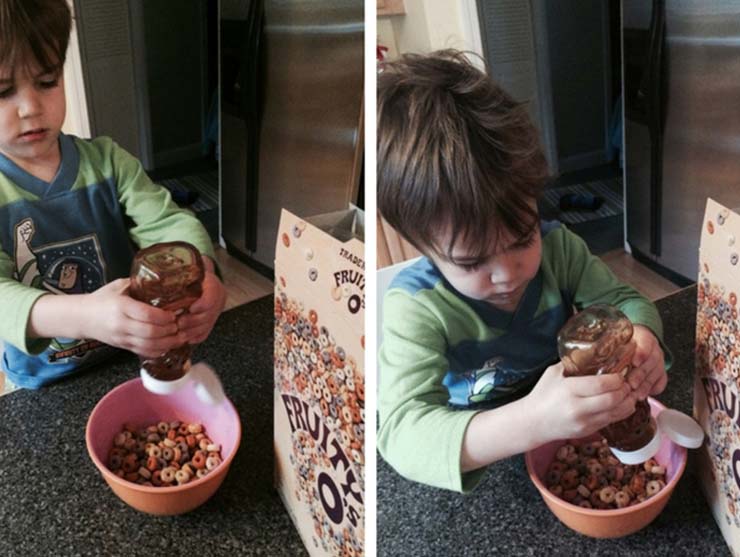Your baby was completely dependent on you for the first year of their life. Now they are a bustling whirlwind of energy, intent on taking care of themselves - and don’t get in their way. You probably feel a sense of pride and excitement at your child’s new growth. You might feel sadness that the baby period is over. And then there’s the inevitable tug-of-war as your expectations clash with your toddler’s newfound desire for freedom.
Most children enter the “Me Do It” stage between 18 and 36 months with varying degrees of intensity depending on their temperament. This stage comes with challenges, such as toddler temper tantrums, but it’s also cause for celebration. It means that your child recognizes themselves as separate from others and feels safe and confident enough to take risks. When children are allowed to try things on their own, they master new skills and build self-esteem. Allowing your child opportunities to do things independently takes longer than if you helped, but the end results are worth the extra effort. Below are a few tips to encourage toddler development and help your child through this exciting time.
Tips for Encouraging Toddler Development
- Offer reasonable choices when possible. Giving your toddler choices helps them feel more empowered and fosters independence. Offer two age-appropriate and acceptable alternatives, e.g., “You can wear the green shirt or the blue shirt,” or, “Would you like to build a block tower or read a book? This strategy allows you to set appropriate limits, while acknowledging your child’s need to “do it myself”.
- Make your home toddler-friendly. A toddler-friendly environment encourages exploration and safety; two things that are quite important for the developing toddler. Keep plastic cups and bowls in a low cupboard within your child’s reach so they can serve themselves a snack. Buy simple knit pants with an elastic waistband instead of snaps and buttons so they can more easily dress themselves. Place sturdy stools in the bathroom. Arrange items of interest and favorite toys on low, open shelving. These small gestures allow your toddler to navigate their space safely and more independently, which is so important for their growing sense of autonomy.
- Work together on toddler-friendly activities together. Children have an innate need to contribute. Toddlers can help with chores and other household activities that are age-appropriate. Extended activities, such as baking cookies or planting a garden with your toddler, are wonderful ways to encourage independence. Though something as simple as inviting your child to help wash the vegetables for dinner can be enough to fulfill their need to be involved. Providing these opportunities boosts their self-confidence and increases cooperation.
- Add "toddler time" to your daily routine. Build some extra time into your routine to allow for your toddler’s burgeoning independence. Lean into what you know your child needs; you’ll feel more patient and your toddler will feel more in control.
- Give clear, simple directions. Use clear, direct language with your toddler. Tell your child what you want them to do, rather than what you don’t want them to do, and offer empathy and understanding when toddler tantrums occur. For example, perhaps your toddler wants to climb the shelves in the pantry to reach a favorite snack. Say, “I see that you would like a snack. Climbing the shelves isn’t safe. I will help you down. You can get the bowls from the bottom cupboard.”
- Adapt to your child's needs. Every toddler is different, so it is important to observe and respond to your child’s unique developmental pace and temperament. Be ready to be flexible and adjust your approach as needed, ensuring your child feels supported and understood.





